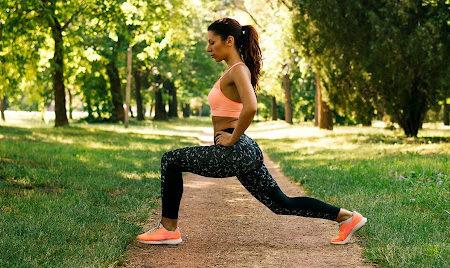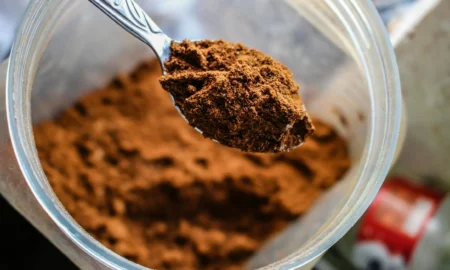Research has established beyond a doubt that having a carb-and-protein drink after exercise boosts muscle protein synthesis. The mechanism involves a heightened insulin response, lower cortisol counts and increased amino acid delivery into muscle. Taking in carbs alone blunts muscle protein breakdown but doesn’t boost muscle protein synthesis. More recent studies show that having a carb-and-protein drink may be even more anabolic prior to training than postworkout. That’s because exercise improves circulation, which in turn increases amino acid delivery to muscle. Having the amino acids in the muscle speeds muscle protein synthesis. The best plan may be to down a drink containing both high-glycemic-index, or fast-acting, carbs and a rapidly absorbed protein, such as whey, just before and immediately after a workout.
The effectiveness of the carb-and-protein combination—usually in a ratio of 3-to-1, as in three parts carb to one part protein or 75 grams carbs to 25 grams protein—makes you wonder what would happen if you drank while you trained. That idea has come up in the past. More than a decade ago an article suggested that a high-carb, moderate-protein drink would greatly aid bodybuilding progress because it would spur insulin release during training. The idea didn’t catch on because you had to drink nearly three quarts of fluid during the workout. The resulting gastrointestinal distress wasn’t popular.
Another problem was that physiology textbooks say that insulin is depressed during exercise. Since insulin lowers blood glucose, a prime fuel during exercise, it makes sense that insulin release would be blunted during training. The mechanism involves the release during training of catecholamines such as epinephrine and norepinephrine, which depress insulin release. Another problem is that during training, a protein called AMPK is elevated in muscle. AMPK acts as a metabolic switch, making the muscle use fat more than carbohydrate as a fuel source. While that’s good for fat loss, AMPK also blocks protein synthesis during exercise. The prime concern of the body during exercise, which is interpreted as stress, is to allow rapid use of fuel rather than building new tissue.
A recent study, however, looked at what happens when you have a carb-and-protein drink while training with weights. That’s important because bodybuilding is anaerobic and doesn’t use fuel in the same way as aerobics. AMPK and the catecholamine effect may not be as potent as they are during aerobics. In the study, 10 healthy men were examined in the evening after eating a day’s normal fare; most previous studies examined subjects who’d fasted before getting the drink. The subjects in the new study got either carbs alone or a carb-and-protein combination. The precise doses were 0.15 grams of carbs per kilogram of bodyweight, or the same amount of carbs with the same level of protein hydrolysate, which is a rapidly absorbed protein. That dose would be unlikely to cause nausea, as the whole protein drink did in the earlier experiment.
The study found that the carb-and-protein drink improved protein balance in the entire body and increased muscle protein synthesis, as measured by incorporation of tagged amino acids into muscle. The combination also fostered decreased muscle breakdown during training. Add it all up, and you get a potent anabolic effect. The authors suggest that the mechanism may involve an enabling of the muscle protein synthesis pathway, which makes sense because amino acids such as leucine are known to potently stimulate that pathway.
The workout began three hours after the last meal, and the carb-and-protein combo was drunk every 15 minutes during it to permit a continuous supply of glucose and amino acids. The authors also suggest that the technique works because intermittent exercise, as in weight training, doesn’t turn on the AMPK that would otherwise block muscle protein synthesis during training.
If you want to try this, use an easily digested protein source, such as a whey hydrolysate, or even amino acids themselves. The carb should be high-glycemic and rapidly absorbed. A product called Vitargo would be ideal for the purpose, since its extraordinarily high molecular weight and low concentration results in much more rapid uptake than you’d get from other carb sources. That kind of product ensures uptake of nutrients while preventing gastrointestinal distress. IM
Beelen, M., et al. (2008). Protein co-ingestion stimulates muscle protein synthesis during resistance type exercise. Am J Physiol Endocrinol Metab. 295:E70-E77.




















You must be logged in to post a comment Login